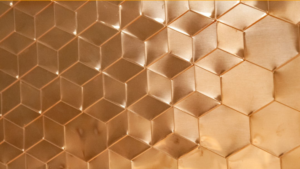A 70 30 copper nickel sheet has the potential for a new application. Copper alloys now have the potential to help fight climate change. Demands for copper alloys are steadily on the rise as the global market continues its transition from fossil fuels. Copper nickel mines are being considered to be built by certain groups seeking to create cleaner forms of energy. How a 70 30 copper nickel sheet impacts the environment will be an interesting development to watch.
Copper Nickel’s Growing Demand
There is a growing need for an influx of copper alloys when it comes to solar power. Higher demands for wind technology increase the need for copper and nickel alloys. The U.S. has fewer reserves of these precious metals than many other countries. While copper can be recycled, the amounts are not enough to cover the demands that solar will create as the industry grows. In order to fuel greener technology, new mines will have to be created to increase available resources.
The downside for building copper and nickel mines is the risk of water pollution. This is creating issues with mining advocates who are trying to develop more energy renewable sources from these types of alloys. Underground mines will need to be built away from major water sources to avoid potential contamination.
Other Useful Applications
Copper is incredibly powerful because it can act as a conductor for electricity and heat. It can also be welded and bent into sheets and wires. A 70 30 copper nickel sheet is stable thermally and can keep its strength with high temperatures. It is also highly resistant to sea corrosion because it contains significant amounts of iron and manganese.
Copper is also one of the most common metals within the construction industry, along with aluminum, stainless steel, and carbon steel. Copper nickel alloys have a high resistance to oxidation and stress corrosion cracking. They can be used for desalination units, hydraulic lines, and offshore firewater systems. They are most suitable for situations in which stainless steel cannot be used. This makes them highly ideal for seawater services.
The 70 30 copper nickel sheet can be used in a variety of ways, especially when it comes to underwater marine applications. They can sustain high temperatures and exposure to oxidation. The idea that this alloy is now being considered to help fight climate change is an interesting one indeed. If we can harness its power to transition away from fossil fuels, we can definitely build a more sustainable future.

